LES INTERVENANT(E)S
|
LES INTERVENANTES ET INTERVENANTS
|
| |
|
Florence ADER
|
| |
|
 |
Infectiologue et cheffe de service du service des maladies infectieuses et tropicales des Hospices Civils de Lyon.
Professeur des Universités à la faculté de médecine de Lyon.
Chercheuse au sein de l'Inserm 1111, Centre International de Recherche en Infectiologie, équipe CNR des Légionelles.
Investigateur coordonateur de l'essai Discovery dans le consortium pan-européen EU-RESPONSE.
|
| |
|
| Nathalie BAJOS |
| |
|
 |
Nathalie Bajos, sociologist and demographer, is a research director at the Institut national de la santé et de la recherche médicale (INSERM) in France and at the Ecole des Hautes Etudes en Sciences Sociales (EHESS).
Her research focuses on social health inequalities, with an intersectional approach (gender/class/race).
She has co-directed several major national and international surveys on sexuality and sexual health, including the one currently being carried out at the commission of the ANRS: CSF-2022
She is currently the scientific co-director of an European research project on Gender Health Inequalities (Gendhi, ERC-Synergy 2019) and of a national socio-epidemiological cohort survey on COVID-19.
|
| |
|
| Alain BAULARD |
| |
|
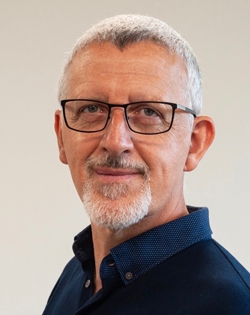 |
Alain Baulard is Director of Research at INSERM. He holds a PhD in Molecular Biology from the University of Louvain and an HDR degree from the University of Lille. He did his doctoral work at the Pasteur Institute of Lille under the supervision of Dr Camille Locht where he created innovating molecular tools for the development of recombinant BCG as a polyvaccine delivery system. In 1996, he joined Pr Patrick Brennan’s team at the Colorado State University where he studied the biogenesis of the cell wall of Mycobacterium tuberculosis. He moved in 1998 to the University of Newcastle, UK with Pr Gurdyal Besra where he studied the mode of action of antibiotics targeting the mycobacterial cell wall. He was recruited in 1997 as “Chargé de Recherche” at INSERM and appointed “Directeur de Recherche” in 2009. At Institut Pasteur de Lille, AB demonstrated that M. tuberculosis controls its own sensitivity to proantibiotics through transcription regulators. With colleagues at U1177, AB developed small molecules that deregulates this control, rendering M. tuberculosis hypersensitive to ethionamide, isoxyl, thiacetazone. Recently, his team identified small molecules reversing pretomanid resistance. AB is the Permanent Secretary of the Mycobacteriology Department of the French Society of Microbiology (SFM). He is an expert for ANRS-MIE since 2020. AB leads a team of the IMI-ERA4TB initiative and is the national coordinator of the Mustart project (Multiparametric strategies against antibiotic resistance in tuberculosis) supported by the French initiative “PIA-Investments for the Future”. He is invited professor at the University of Louvain since 2008. |
| |
|
| Gilles BLOCH |
| |
|
|
© Inserm / F. Guenet
|
Nommé en conseil des ministres le 26 novembre 2018, le Dr Gilles Bloch a pris ses fonctions de Président‐directeur général de l’Inserm le 2 janvier 2019.
Polytechnicien, médecin et chercheur, spécialiste d’imagerie médicale, Gilles Bloch a réalisé une partie de sa carrière au Commissariat à l’énergie atomique (1989 ‐ 2002) avant de prendre la direction de l’Agence nationale de la recherche au moment de sa création (fév. 2005 ‐ mai 2006). Il est ensuite nommé Directeur général de la recherche et de l’innovation au ministère de l’Enseignement supérieur et de la Recherche (2006 ‐ 2009) avant de rejoindre le CEA en tant que directeur des sciences du vivant. Depuis 2015, il présidait l’Université Paris‐Saclay.
|
| |
|
|
Vittoria COLIZZA
|
| |
|
 |
Vittoria Colizza is Head of Research at INSERM (French National Institute for Health and Medical Research) & Sorbonne Université, Faculty of Medicine, working in the Pierre Louis Institute of Epidemiology and Public Health, within the 'Communicable Diseases Surveillance and Modelling' team where she leads the EPIcx lab (Epidemics in complex environments). Through modeling, her research spans a wide array of issues on epidemic and pandemic risks and propagation, accounting for the role of social contacts and mobility, and the interaction between population behavior and contagion dynamics. Integrating data from sensors and digital surveillance, her work provides actionable insights for the management of epidemic and pandemic crises, evaluating the epidemic impact, anticipating the epidemic evolution and the effectiveness of control measures. Since January 2020 she has been active in the response against COVID-19 pandemic, advising French governmental bodies and health agencies, and international authorities. For her work on the pandemic, in 2020 she received her knighthood of the Order of Merit of the Italian Republic by the Italian President, the highest-ranking honor of the Italian Republic; in 2021 she was awarded the prix Irène Joliot Curie – Prix spécial de l’engagement by the French Academy of Sciences and the French Ministry of Research. Trained as a physicist (PhD in Statistical and Biological Physics in 2004 at the International School for Advanced Studies, SISSA, in Trieste, Italy), she worked at Indiana University (US) in the School of Informatics as post-doc (2004-2006) and visiting Assistant Professor (2007), and joined ISI Foundation (Turin, Italy, 2007-2010) after being awarded an ERC Starting Grant in Life Sciences in 2007. In 2011 Colizza joined INSERM in Paris, and was promoted Head of research in 2017. Since 2020, she is Visiting Professor at the Tokyo Institute of Technology in Japan. |
| |
|
| Pierre DELOBEL |
| |
|
 |
Médecin Infectiologue, Professeur des Universités - Praticien Hospitalier
Chef du Service des Maladies Infectieuses et Tropicales du CHU de Toulouse
PhD, HDR, membre de l’équipe « Infections virales : persistance, réponse de l’hôte et physiopathologie » à l’Institut Toulousain des Maladies Infectieuses et Inflammatoires (Infinity), Inserm UMR1291-CNRS UMR5051-Université de Toulouse.
Membre de l’Institut Universitaire de France.
Activité de clinicien en Maladies Infectieuses au CHU de Toulouse, d’enseignement à la faculté de Médecine de Toulouse, et de recherche clinique et translationnelle sur l’infection VIH focalisée sur l’étude de la persistance du VIH et la restauration immunitaire dans la muqueuse intestinale sous traitement antirétroviral.
|
| |
|
| Bintou DEMBÉLÉ KEITA |
| |
|
 |
Dr DEMBELE Bintou KEITA est Directrice Générale de ARCAD Santé PLUS depuis 10 ans, membre fondatrice de l’association, elle a d’abord été médecin traitant au centre communautaire, le CESAC (Centre d’Ecoute de Soins d’Animation et de Conseils) de Bamako pendant 10 ans. Docteur d’Etat en médecine, elle a un master en santé publique spécialisée en santé communautaire, grâce à ses efforts constants dans lutte contre le Sida ; elle obtenu des distinctions de reconnaissance au niveau national (Officier de l’ordre national) et international (Légion d’honneur par la France). Actuellement ARCAD-SIDA est devenue ARCAD SANTE PLUS (Association pour la Résilience des Communautés vers l’Accès au Développement et à la Santé Plus), elle a élargi sa mission à d’autres maladies et un centre de recherche et actions communautaire a été créé. |
| |
|
| Xavier DE LAMBALLERIE |
| |
|
 |
Xavier de Lamballerie is a MD and PhD, currently Professor of Virology at Aix Marseille University. As a medical virologist, he has been working for 25 years on emerging viral disease with a special focus on arboviruses, haemorrhagic fever diseases and respiratory infections. He is the head of UVE, which has long lasting implantations in South-East Asia, Africa and South America. It puts a strong emphasis on molecular identification of virus pathogens and on diagnostics and human therapeutics of emerging viral diseases. |
| |
|
| Claudia M. DENKINGER |
| |
|
 |
Claudia M. Denkinger is an infectious disease specialist with a background in immunology and epidemiology and a research focus on Global Health relevant diagnostic development and evaluation.She completed her medical school training (MD), PhD thesis in immunology and Master in Tropical Medicine and International Public Health (MsC TMIH) at the Julius-Maximilians University, Germany, Case Western Reserve University, USA and the London School of Hygiene and Tropical Medicine, UK. Her postdoctoral fellowship at McGill University, Canada, focused on tuberculosis epidemiology and impact assessment as well as mathematical modelling of tuberculosis diagnostics. She specialised in internal medicine and infectious disease at BIDMC, Harvard Medical School, USA and was also a chief medical resident there. At the BIDMC, She was co-founder and co-director of the Global Health Program that promotes international partnerships and resident training in Global Health. She continued to hold a faculty appointment in the Division of Infectious Disease at the BIDMC until March 2015. Starting 2014, Claudia M. Denkinger served as the Head of the Tuberculosis at FIND, Switzerland, a non-for profit organization that aims to develop, evaluate and implement fit-for-purpose diagnostic solutions for disease of poverty. At FIND She also built the new Hepatitis program. She has contributed significantly to tuberculosis research and more recently to hepatitis research in advancing the understanding of the needs around diagnostics in LMICs and the development and evaluation of novel diagnostic tools to meet those needs. For her work on tuberculosis diagnostics, She has been awarded the Gertrud Meissner Prize in 2016. In 2019, She left Geneva for her new position as Head of Division of Infectious Diseases and Tropical Medicine, Heidelberg University Hospital. |
| |
|
| Isabelle DIMIER-POISSON |
| |
|
 |
Professeur des Universités, spécialisé en immunité anti-infectieuse, à l'UFR de Pharmacie de l’Université de Tours, Isabelle DIMIER-POISSON dirige l’équipe « BioMAP» de l'UMR ISP 1282 Université-INRAe dont elle est directrice adjointe. Son équipe qui appartient au labex MAbImprove développe des thématiques de recherche portant sur la conception et le développement de nouvelles stratégies immunoprophylactiques et immunothérapeutiques anti-infectieuses. Depuis 2 ans, elle porte un projet de vaccin protéique à administration nasale anti-COVID-19 soutenu par le ministère de l'Enseignement Supérieur de la Recherche et de l'Innovation, et accompagné par l’ANRS | Maladies infectieuses émergentes. Pour accélérer le développement de ce vaccin, elle a co-fondé fin Janvier 2022 la start-up française LoValTech, labellisée Deeptech par BPI France, qui a pour objectif de piloter le projet des phases de développement de la formulation vaccinale jusqu’aux essais cliniques. |
| |
|
| Anna Bella FAILLOUX |
| |
|
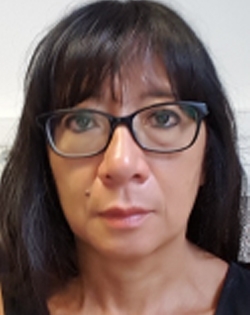 |
Professeure Anna-Bella Failloux, PhD, est entomologiste médicale et chef de l'unité «Arbovirus et insectes vecteurs» dans le département de virologie de l'Institut Pasteur à Paris. Ses travaux se concentrent principalement sur les interactions arbovirus-moustiques et plus particulièrement, les contributions relatives des facteurs génétiques, épigénétiques et environnementaux conduisant à l'émergence virale. Dr. Failloux a obtenu son doctorat en Ecologie / Entomologie à l'Université d'Orsay (Paris XI). Après un stage post-doctoral à l'Institut Pasteur, elle est recrutée en tant que scientifique en 1996. Elle est l'auteur de plus de 200 publications scientifiques (dont plus de 100 en dernier auteur) sur les vecteurs des Alphavirus, Flavivirus et Phlébovirus. Elle participe activement à l'enseignement de l'entomologie médicale en tant que co-directrice du cours «Insectes Vecteurs et Transmission des agents pathogènes» et du MOOC «Medical Entomology» de l'Institut Pasteur. |
| |
|
| JJeremy FARRAR |
| |
|
 |
Jeremy Farrar is Director of the Wellcome Trust – the world’s second largest independent charitable foundation that exists to improve human health through research. Jeremy is a clinician scientist who before joining Wellcome in 2013 was, for eighteen years, Director of the Clinical Research Unit at the Hospital for Tropical Diseases in Viet Nam, where his research interests were in global health with a focus on emerging infectious diseases. He was named 12th in the Fortune list of 50 World’s Greatest Leaders in 2015 and was awarded the Memorial Medal and Ho Chi Minh City Medal from the Government of Viet Nam. In 2018 he was recognised as the President Jimmy and Rosalynn Carter Humanitarian of the Year. Jeremy was knighted in the Queen’s 2019 New Year Honours for services to global health and awarded the Order of the Rising Sun, Gold Rays with Neck Ribbon by the Government of Japan in recognition of contribution to global health. He is a Fellow of the Academy of Medical Sciences UK, European Molecular Biology Organisation (EMBO), the National Academies USA and a Fellow of The Royal Society. |
| |
|
| Mouloud-Yanis Ghali FERAOUN |
| |
|
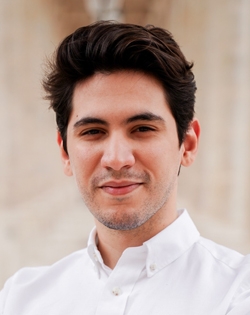 |
I am a 3rd year PhD student at the Commissariat à l’Energie Atomique (CEA) under the direction of Anne-Sophie BEIGON, after earning a Master’s degree in Immunology from Sorbonne University and Institut Pasteur. My research is conducted at IDMIT in a Université Paris-Saclay-INSERM-CEA unit lead by Roger LE GAND. I use approved vaccines, vaccine candidates and vaccine models in non-human primates to decipher vaccine mechanisms of action and to analyze new paradigms of immunology, notably innate memory, to improve current vaccination strategies. |
| |
|
| Priyanka FERNANDES |
| |
|
 |
Priyanka Fernandes a obtenu en 2016 son doctorat en Maladies Infectieuses (paludisme) de l'Université de Heidelberg Allemagne. Pour son post-doctorat, elle a rejoint le Centre d'immunologie et des Maladies Infectieuses (CIMI) à Paris pour étudier les interactions hôte-pathogène entre le parasite du paludisme et les hépatocytes de 2016-2019. Depuis 2019, elle a rejoint l’Unité Immunité Innée à l'Institut Pasteur, où elle s’intéresse aux réponses immunitaires humaines lors des infections chroniques par l’HBV, ainsi qu’aux traitements antiviraux ou immunothérapeutiques, dans un modèle de souris humanisées. |
| |
|
| Jennifer GORWOOD |
| |
|
 |
Très sensible à la recherche sur le VIH, j’ai travaillé sur cette thématique dès le Master 2 au sein de l’équipe du Pr Olivier Lambotte (UMRS_1184/CEA) sur les impacts du VIH sur le système immunitaire dans différents types cellulaires (PBMC, cellules du tissu adipeux). J’ai ensuite réalisé mon doctorat, dans l’équipe du Pr Bruno Fève au Centre de recherche Saint-Antoine à Paris. Ma thèse a été co-encadré des Dr Claire Lagathu et Dr Véronique Béréziat et financée par Sidaction. Elle a permis d’évaluer les effets respectifs du VIH et des inhibiteurs d’intégrase dans les atteintes du tissu adipeux et de mieux comprendre les mécanismes en cause. Grâce à plusieurs collaborations, j’ai étudié l’impact du virus, et des antirétroviraux in vivo sur le tissu adipeux issu de macaques et de patients, et in vitro sur des cellules souches adipeuses humaines (Adipose Stem Cells). Actuellement, je réalise un postdoctorat dans l’équipe du Pr Cecilia Söderberg-Naucler à l’institut Karolinska à Stockholm, en Suède. Mon projet de recherche a pour objectif de comprendre comment le cytomégalovirus (CMV) altère le métabolisme cellulaire des macrophages afin de contrôler la réactivation et la latence virale. |
| |
|
| Anne GOSSELIN |
| |
|
 |
Anne Gosselin, démographe, est chargée de recherche à l’Ined (Institut National d’Etudes Démographiques), dans l’unité Mortalité, Santé, Épidémiologie. Ses travaux portent principalement sur la santé des immigrés : elle s’intéresse en particulier aux inégalités sociales de santé et à l’articulation entre trajectoires de vie et trajectoires de santé dans les domaines du VIH/sida (Projet ANRS-Parcours), du cancer, du Covid-19, et développe des projets de recherche participatifs et communautaires (Projet ANRS Makasi). Elle est fellow de l’Institut Convergences Migrations/CNRS et chercheure associée au Centre Population et Développement (CEPED, Université de Paris, IRD, ERL Inserm). |
| |
|
| Chikwe IHEKWEAZU |
| |
|
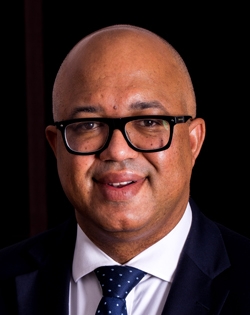 |
Dr Chikwe Ihekweazu is the Assistant Director General at the World Health Organization (WHO) for Surveillance and Health Emergency Intelligence and leads the WHO Hub for Pandemic and Epidemic Intelligence, based in Berlin, Germany. Previously, Dr Ihekweazu was the first Director General of the Nigeria Centre for Disease Control (NCDC), which he led July 2016 - October 2021, building it from a small unit to a leading public health agency in Africa. He acted as Interim Director of the West Africa Regional Centre for Surveillance and Disease Control through 2017. Dr Ihekweazu trained as an infectious disease epidemiologist and has over 25 years’ experience working in senior public health and leadership positions in national public health institutes including NCDC, South African National Institute for Communicable Diseases, the UK's Health Protection Agency, and Germany’s Robert Koch Institute. Dr Ihekweazu has led several short-term engagements for WHO, mainly building surveillance systems and responding to major infectious disease outbreaks. He was part of the first WHO COVID-19 international mission to China. Dr Ihekweazu is a graduate of the College of Medicine, University of Nigeria and has a Masters in Public Health from the Heinrich-Heine University, Dusseldorf, Germany. In 2003, he was awarded a Fellowship for the European Programme for Intervention Epidemiology Training and subsequently completed his Public Health specialisation in the UK. He has over one hundred publications in medical peer review journals, mostly focused on the epidemiology of infectious diseases. Dr Ihekweazu is on the board of the NGOs: African Society of Laboratory Medicine, Child Health and Mortality Prevention Surveillance, Public Health Foundation of Nigeria, Health Watch Foundation, Society for Family Health, Education as a Vaccine, and the Africa Policy Advisory Board of ONE. He was a TED Fellow and co-founded and delivered the TEDxEuston event from 2009 to 2019.
|
| |
|
| Marie JASPARD |
| |
|
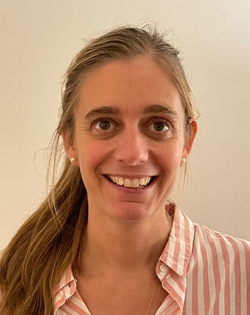 |
Marie Jaspard est médecin interniste spécialisée dans les maladies infectieuses et tropicales, ancienne cheffe de clinique des hôpitaux de Paris et actuellement en thèse de science sur la Recherche Opérationnelle sur les Maladies Infectieuses Émergentes en Afrique sub-saharienne au sein de l’Université de Bordeaux. Elle a de plus réalisée plusieurs missions humanitaires avec MSF, ALIMA ou la Croix Rouge Française. Elle a notamment travaillé en Guinée lors de l’épidémie d’Ebola, au Sud Soudan sur la problématique des pathologies chez dans les camps de déplacés et en Haïti sur l’épidémie de Choléra. Depuis 2018, elle a mis en place CORAL, une plateforme de recherche clinique basée sur un partenariat entre l’ONG ALIMA et l’équipe Inserm 1219 de l’université de Bordeaux, dédiée à la recherche sur les maladies émergentes, avec le soutien de l’ANRS-MIE. Dans ce contexte, son équipe a pu mettre en place la cohorte LASCOPE, incluant près de 900 patients atteins de fièvre de Lassa au Nigeria. Plusieurs études ont ensuite pu se greffer sur cette cohorte. La plateforme CORAL a aussi travaillé sur la maladie à virus Ebola en RDC et en Guinée, et sur la COVID 19 en Guinée et Burkina Faso. |
| |
|
| Dramane KANIA |
| |
|
 |
Pharmacien-Virologue
Chercheur au Centre MURAZ à Bobo-Dioulasso depuis 2004
Docteur en Virologie médicale, Université de Montpellier, France 2014
Docteur en Pharmacie, Université Joseph Ki-Zerbo de Ouagadougou, 2003
Postes occupés
Coordonnateur Sud du site ANRS│MIE) Burkina depuis Février 2017
Directeur du Centre MURAZ par intérim de juin 2020 à janvier 2021
Chef de Service Scientifique et Technique, de septembre 2019 à janvier 2021
Chef du Département des Sciences Biomédicales au Centre MURAZ, Février 2017 à septembre 2019
Chef d’Unité de recherche VIH et Maladies Associées au Centre MURAZ de 2013-2015
Responsable du Laboratoire de Virologie au Centre MURAZ, de 2009 à 2013
Domaine d’activités spécifiques
VIH/SIDA
Hépatites virales
Maladies infectieuses émergentes : Arboviroses, COVID-19, …
Mise au point et développement des outils innovants de diagnostic et de suivi des infections virales dans des pays à revenu faible ou intermédiaire
Auteur ou co-auteur de plus de 40 articles scientifiques
|
| |
|
| Sharon LEWIN |
| |
|
 |
Professor Sharon Lewin is the inaugural director of the Peter Doherty Institute for Infection and Immunity (Doherty Institute), a joint venture between the University of Melbourne and Royal Melbourne Hospital; Melbourne Laureate Professor of Medicine at the University of Melbourne and a National Health and Medical Research Council (NHMRC) of Australia Practitioner Fellow. The Doherty Institute has over 850 staff focused on infectious diseases and immunology through research, education and public health. She competed her medical degree and PhD in virology at Monash University, Melbourne, Australia and her post-doctoral fellowship at the Rockefeller University in New York, with Dr David Ho.
She is an infectious diseases physician and basic scientist. Her research focuses on understanding why HIV persists on treatment and developing clinical trials aimed at ultimately finding a cure for HIV infection. She has published over 350 publications and given over 100 major invited talks on HIV cure. She is President-Elect of the International AIDS Society (IAS) and chairs the IAS Global Advisory board for the Towards an HIV Cure initiative. She also leads the Australian Partnership for Preparedness for Infectious Diseases Emergencies (APPRISE), an NHMRC funded Centre for Research Excellence, which has played a major role in the COVID-19 response in Australia. In 2019, she was named an Officer of the Order of Australia for her leadership in the education, clinical care and research in infectious diseases, specifically HIV.
|
| |
|
| Mathieu MATEO |
| |
|
 |
Après avoir étudié les virus Ebola et le virus de la rougeole, Mathieu Mateo a rejoint l’Unité de Biologie des Infections Virales Emergentes à L’institut Pasteur afin d’étudier le virus Lassa. Actuellement chargé de recherche, ses travaux se concentrent sur les mécanismes viraux d’échappement à la réponse immunitaire innée ainsi que sur le développement de vaccins contre la fièvre de Lassa. |
| |
|
| Jean-Michel MOLINA |
| |
|
 |
Saint-Louis/Lariboisière Hospitals and University of Paris, Paris, France Jean-Michel Molina, MD, PhD, is Professor of Infectious Diseases at the University of Paris, and Head of the Infectious Diseases Department at the Saint-Louis and Lariboisière Hospitals in Paris, France. The Department of Infectious Diseases is mainly involved in the care of immunocompromised patients, patients with HIV infection, bone marrow and renal transplant recipients, and patients with haematological malignancies and cancers. Professor Molina’s primary clinical research interest focuses on HIV infection, initially the treatment of AIDS-related opportunistic infections, and then the treatment of HIV infection. He has been involved in a number of studies assessing new drugs or new strategies for the treatment of HIV infection. A cohort of more than 6,000 patients with HIV infection is followed in his department. He is also a member of the French National Institute of Health and Medical Research (INSERM) U944 team at the Saint-Louis Hospital investigating cell biology of viral infections. He has authored many papers in a wide variety of scientific journals, including Clinical Infectious Diseases, the Journal of Infectious Diseases, the New England Journal of Medicine, the Lancet and AIDS. Professor Molina is also involved in the French National Agency for AIDS Research (ANRS), where he chaired the clinical trial group for the last 12 years. More recently, Professor Molina has broadened his field of interest to the prevention of HIV infection with antiretrovirals and has led the ANRS IPERGAY pre-exposure prophylaxis (PrEP) trial in men who have sex with men. A cohort of more than 3,500 people on PrEP is followed in his unit, and a new ANRS PrEP study (ANRS Prevenir) is implemented in the Paris region to contain the HIV epidemic among gay men.
|
| |
|
| Michaela MÜLLER-TRUTWIN |
| |
|
 |
Michaela Müller-Trutwin est Professeur à l’Institut Pasteur où elle dirige l'Unité « VIH, Inflammation et Persistance». Elle a réalisé ses études de Biologie en Allemagne. Elle a été Directrice de Recherche au sein de l’Unité de Françoise Barré-Sinoussi. Dans le passé, elle a travaillé également à l’Institut Pasteur en Centrafrique et a longuement collaboré avec le CIRMF au Gabon et l’Institut Pasteur à Dakar (Sénégal). Entre autres fonctions, elle est la présidente de l’action coordonnée sur la recherche fondamentale du VIH de l’ANRS-MIE, la Vice-présidente du Conseil Scientifique à l’Institut Pasteur et membre du Comité de pilotage d’IDMIT. Ses études ont largement contribué à une meilleure compréhension du rôle de l'inflammation dans la pathogénèse induite par l’infection VIH et aussi de l’impact des interactions virus-hôte lors de la primo-infection VIH sur le profil d’évolution à long terme de l’infection. Son travail est actuellement axé sur les réponses immunitaires innées dans le but de fournir de nouveaux concepts visant à mieux contrôler les réservoirs viraux, réparer ou prévenir les lésions tissulaires, et aider au développement de stratégies vaccinales et de rémission du VIH. |
| |
|
| Rémi PLANES |
| |
|
 |
Ses travaux de recherches sont principalement axés sur l'étude des mécanismes de détection des agents pathogènes par l'hôte et l'exploration des processus immunitaires qui conduisent au contrôle de l'infection ou au développement de maladies.
Il a préparé une thèse en Immunologie et Maladies Infectieuses sous la direction du Pr. Elmostafa BAHRAOUI au sein de l’institut INFINITY de TOULOUSE Purpan, portant sur l’étude des mécanismes mis en jeux par la protéine Tat du VIH-1 afin de moduler la fonction des cellules dendritiques.
Après avoir soutenu sa thèse en 2013, il a par la suite effectué 3 stages post-doctoraux.
Le premier de 12 mois, à Londres dans l’équipe du Dr. Pierre Guermonprez portant sur l’étude de la réponse des différentes sous-populations de cellules dendritiques humaines contre les globules rouges infectés par le parasite Plasmodium falciparum.
Le second de 24 mois dans l’Institut de Recherche en Infectiologie de Montpellier (IRIM) dans l’équipe du Dr. Caroline Goujon, sur la thématique des gènes induit par l’interféron et leur capacité à moduler la détection des virus à ARN (dont HIV-1 et Influenza A).
Le troisième de 36 mois à l’Institut de Pharmacologie et Biologie Structurale (IPBS) de Toulouse, dans l’équipe du Dr Etienne Meunier où j’ai étudié les mécanismes de détection des agents pathogènes par les récepteurs de la famille des inflammasomes.
Il est actuellement chef de projet Recherche & Développement au sein de InvivoGen en CDD en attendant d’obtenir un poste fixe de chargé de recherche.
|
| |
|
| Ottavia ROMOLI |
| |
|
 |
Ottavia Romoli a réalisé sa thèse sur l’immunité du ver à soie à l'Université de Padoue en Italie. En 2017, elle a rejoint le groupe de Mathilde Gendrin à l'Institut Pasteur de la Guyane (Cayenne, Guyane) en tant que post doctorante. Elle y a mené des recherches sur le microbiote des moustiques (la population des microbes colonisant le moustique). En particulier, elle a développé un protocole innovant pour obtenir des moustiques « germ-free » qui lui a permis d’étudier le rôle des bactéries dans le développement des moustiques. Elle a également participé à différentes missions de collecte de moustiques pour étudier la composition du microbiote des moustiques du terrain. Elle a récemment rejoint le groupe de Maria Carla Saleh à l'Institut Pasteur de Paris pour développer un protocole afin de réduire la transmission des arbovirus par les moustiques à l’aide du microbiote.
|
| |
|
| Arlette SIMO FOTSO |
| |
|
 |
Économiste de la santé et Démographe, après un PhD en économie appliquée Arlette a rejoint ICAP at Columbia University et L’Université de Witwatersrand où elle a travaillé sur le projet Population-Based HIV Impact Assessments (PHIA) dans 11 pays africains, afin de mesurer la portée des programmes de lutte contre le VIH. Elle a ensuite rallié le Groupe de la Banque Mondiale et travaillé sur le Projet pour le Capital Humain (HCP) pour promouvoir des investissements de qualité en santé et éducation dans le monde. Depuis août 2019 Arlette est une des co-investigatrices du projet ATLAS, et fait partie de l’équipe de l’Institut de Recherche pour le Développement (IRD) et du Centre Population & Développement (Ceped), Inserm (ERL) 1244 à Paris. |
| |
|
| Deborah WILLIAMSON |
| |
|
 |
Professor Deborah Williamson is a clinician-scientist, Director of the Victorian Infectious Diseases Reference Laboratory and Professor of Public Health Microbiology at the Doherty Institute, University of Melbourne. She is co-chair of the Communicable Diseases Genomics Network of Australia and an NHMRC Investigator Grant Fellow. She received a L’Oreal-UNESCO Women in Science Fellowship in 2017 and was awarded the 2020 Frank Fenner Award for research by the Australian Society for Infectious Diseases. Her translational research group at the Doherty Institute focuses on the development and application of diagnostic technologies, including genomics, to infectious diseases. Her research has directly influenced the way microbiology is applied to clinical practice and public health, including responses to antimicrobial resistance, sexually transmitted pathogens and COVID-19. |
| |
|
| Fabien ZOULIM |
| |
|
 |
Fabien Zoulim obtained his M.D. in Gastroenterology and Hepatology in Lyon Medical School in 1991. He has also obtained a PhD in Molecular and Cellular Biology and was trained as a post-doctoral researcher at Fox Chase Cancer Center in Philadelphia. He is Professor of Medicine at Lyon I University since 1997. He is Head of the Hepatology Department at the Hospices Civils de Lyon, and Head of the Viral Hepatitis Research Laboratory of INSERM Unit 1052. Dr Zoulim is currently Associate Editor for Gut. He also served as a Governing Board member of the European Association for the Study of the Liver (EASL). Dr Zoulim received the William Prusoff award of the International Society for Antiviral Research. He is currently coordinating the ANRS “HBV cure” Task Force in France and the “IP-cure-B” project within the EU H2020 workprogram. He co-founded the International Coalition to Eliminate HBV (ICE-HBV: http//:www.ice-hbv.org). He has published more than 500 articles (Web of Science H index 85) and he is a member of the highly cited researchers (Clarivate 2021). |
| |
|
| |
|
| |
|
| |
|
|
|---|
|
|